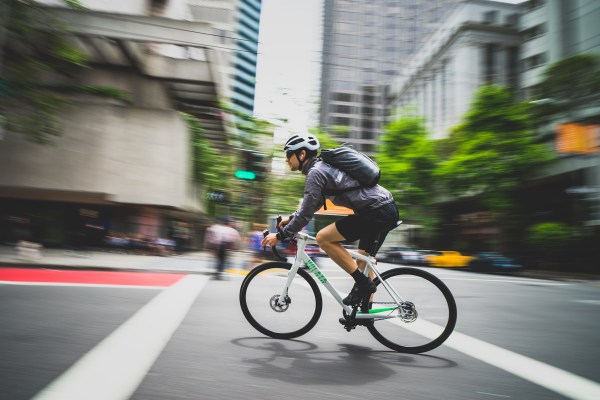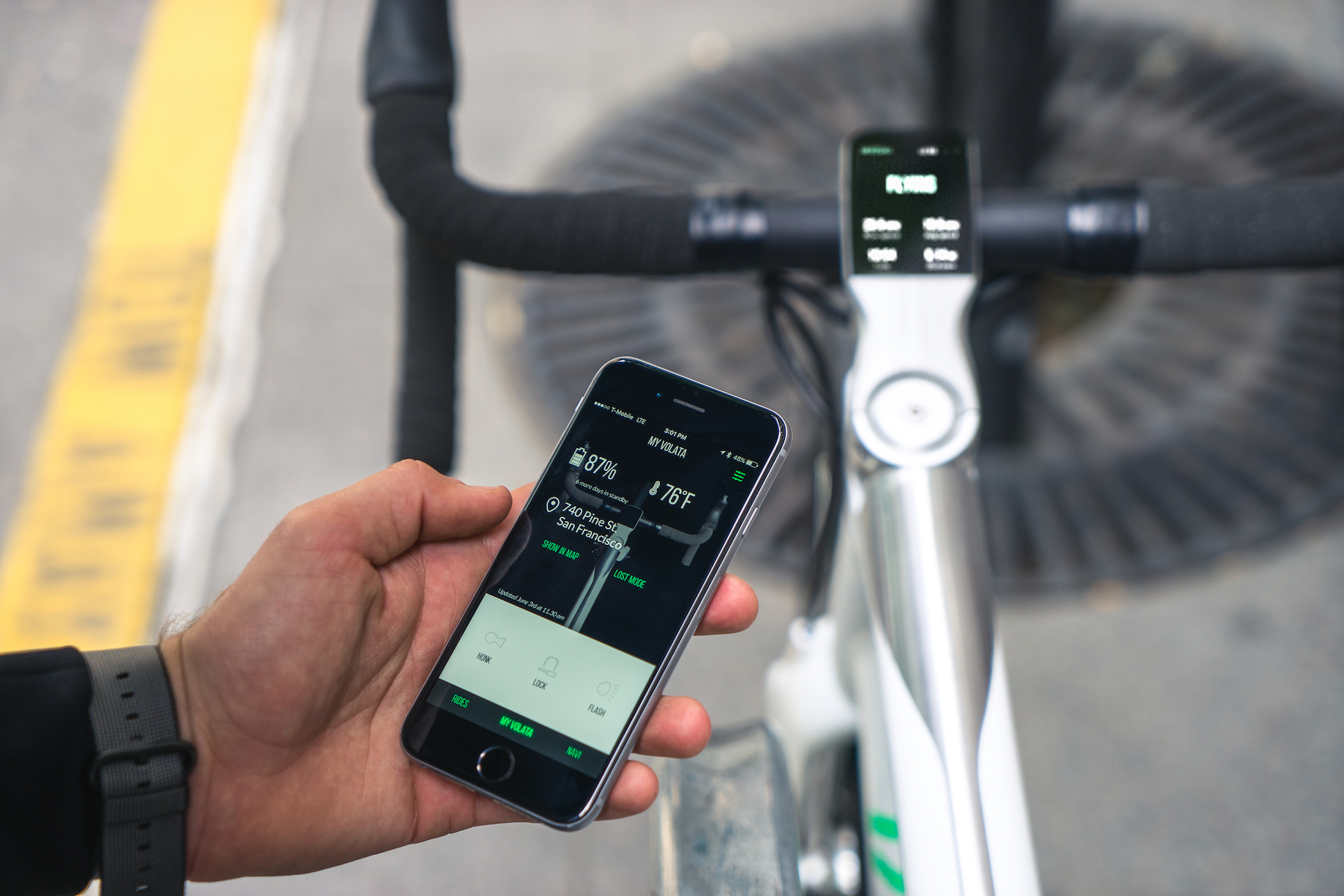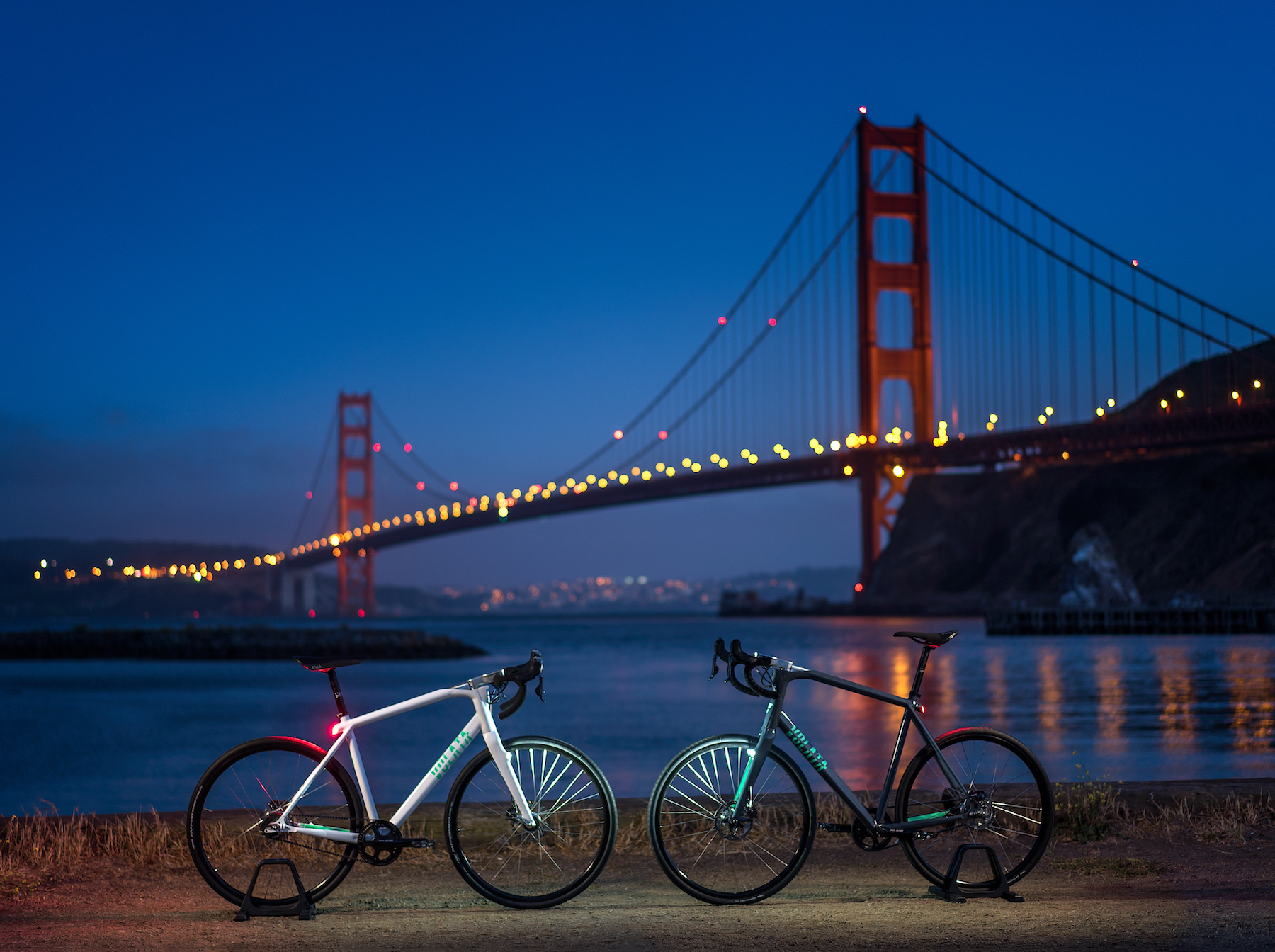San Francisco-based Volata Cycles looked around at the bicycle market and found it lacking, especially when it came to included options. Bikes are still largely sold as basic packages, with a rider expected to add-on key items like lights, and if you’re even thinking about on-board computers or advanced anti-theft, you’re wading into a complex and expensive third-party market.
The Volata, on the other hand, is meant to be everything you need to ride, right from the start. The bike has a fairly high price tag as a result ($299 up-front for a pre-order, with the balance of $3,200 due at delivery – but for that price you get a built-in computer with a 2.4-inch color screen, with Strava integration through Volata’s own app.
A rider can control the on-board computer with a thumb joystick integrated into the handlebar, letting them page through views that show weather, temperature, ride info, turn-by-turn directions and heart-rate info if a user is wearing a compatible Bluetooth heart rate monitor (including Apple Watch). Push notifications from your phone also show up on the display.
Also included int the price tag are built-in, automated front and rear lights that turn on when it gets dark and turn off when it lightens. An electronic horn lets you alert riders, pedestrians and drivers around you to your presence, and all of the electronic components are powered by your riding – a dynamo hub on the front wheel charges your battery automatically.
$3,499 is a decent investment, so Volata also built smart security features into the bike. It has a three-part anti-theft system, which starts with motion detection that looks for potential theft, then triggers an alarm and sends a notification to your smartphone when it detects what might be bad behavior. And if the thief gets away, it has built-in GPS for location tracking.
Of course, if you don’t like the bike, all the whiz bangs and doodads in the world aren’t going to change your mind. Volata says it paid just as much attention to frame and geometry design, and it certainly went to the experts; Volata is designed in Italy, though the startup resides in San Francisco and all final assembly takes place in California.
Founder Marco Salvioli has the chops to back up Volata’s claims, too: He’s worked in the R&D department at Fiat, as well as the research and innovation group at BMW. He explained to me that the all-in-one approach is better from an end-user perspective for a number of reasons.
“Some features, like navigation, tracking and forecast can be provided by a smartphone mounted on the handlebar, but this would require the user to mount and dismount their phone on the bike every time, open multiple apps, use the smartphone’s battery and it’s sensitive to weather conditions,” he said. “We’ve followed an approach closer to Apple Car Play or Android Auto, where some logics run in the smartphone that stays in the rider’s pocket, and the bike’s built-in display shows such information without the user to turn anything on and off – without fragmenting the riding experience.”
Volata isn’t the first bike startup to try to ‘smarten up’ the field with a high-tech approach. Canada’s Vanhawks created the Valour in 2014, a connected bike that raised over $100,000 on Kickstarter. Recent reports, however, suggest the company isn’t doing very well anymore, and I asked Salvioli why Volata stands to succeed where Vanhawks seems to have missed the mark.
“The Valour was a great product but it was particularly criticized by bike community due to their hardware choices. This pushed many users back,” he explained. “Also it does not feature a display (so there is no visual UI except for the turn-by-turn LEDs) which is the core of Volata’s user interaction, or a horn, or automated lights. And their antitheft system is not based on a bike’s built in network connectivity (GSM) able to send the bike’s location to the internet anytime, and a built-in accelerometer that detects the theft attempt.”
Volata will still have to ship product to customers in order to make its smart bike a reality, but at least it has working prototypes and a solid grasp of the engineering involved. The startup plans to start shipping its bikes in July of 2017, but it also intends to do test rides and demos in various locations between now and then.



